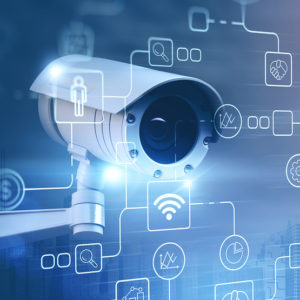By now, most everyone save President Trump and his maddest followers have grudgingly accepted that the “new normal” after the coronavirus assault will change our everyday routines significantly with a broad range of restrictions.
But beyond the ceaseless new reports of infection rates, hospitalization trends and death counts, companies from around the world are seeking billions in government and private-sector contracts to impose far more intrusive changes on our lives than wearing masks or maintaining distance.
As the world’s greatest scientific minds race to create COVID-19 vaccines and treatments, a separate group of brilliant techno-geeks is rushing to perfect surveillance tools ready to leap from the realms of science fiction into reality.
AI — Artificial Intelligence — will use facial modeling to identify people beneath masks. Smart phone pings will track our every movement, with governments, police forces and health agencies sharing real-time geolocation logs. Facial-recognition systems will produce images to be matched with driver’s license photos. Credit card issuers, banks, internet providers and cell phone companies will feed massive databases to track the routes of quarantine violators.
“Healthcare Smart” public buses and trains will measure passengers’ temperatures through remote biometric sensors.
Millions of new-generation video cameras will be installed to watch where we go and how many friends or co-workers we gather with, whether at our jobs, on the street or in parks. “Pandemic drones” will glide overhead to detect elevated body temperatures and record people coughing.
When the dust settles, we will almost certainly find ourselves under multiple layers of surveillance that will make the post-9/11 monitoring systems seem like amateur hour.
Long before the pandemic, Google and other search engines had faced criticism for commercializing our online journeys, angering people who got pop-up ads and solicitation emails tied to their internet searches. Now, as America starts to open up in its current chaotic, patchwork fashion, far deeper privacy raids will enter the real world.
Former Google CEO Eric Schmidt said the need for increased surveillance is being driven by the evolving evidence that there are many more coronavirus carriers than previously believed, the majority of them asymptomatic.
“Many people are giving the disease to others without having any symptoms at all,” he told CNN. “So how could you possibly trust the person next to you unless they’re a family member or somebody you know very well?”
In a bitter twist of irony, at least until a vaccine and universal testing become available, the kind of ubiquitous, invisible surveillance that previously inspired so much suspicion is now being offered as a panacea for a new type of technological trust.
However, with some Americans already viewing lockdowns as intrusions on their liberty, Schmidt believes that the tracking systems newly employed in countries such as China and South Korea will spark still more controversy in the United States.
“In America, it’s unlikely that we’re going to be willing to adopt the extreme measures that Asian countries have been doing, which have suppressed the virus,” he said. “And testing without contact tracing is not very useful.”
Israel has been a coronavirus success story. It has had just 2.93 deaths from the virus per 100,000 people, scarcely one-tenth the mortality rate of the United States at 25.17 deaths per 100,000 people.
Among the world’s most technologically advanced countries, Israel has honed a cutting-edge surveillance system over decades of conflict with its Arab neighbors and internal strife with Palestinians. Now the government is turning the advanced monitoring inward to its own Jewish citizens, a change that has startled even those Israelis who understand the need to track coronavirus carriers.
Shin Bet, the FBI-equivalent in Israel as its chief internal security agency, is using counter-terrorism technology to hunt down people exposed to COVID-19.
“It’s the same system, the same methods,” Arik Brabbing, the agency’s former head of cyber-espionage, told the BBC. “We know that someone was here in the park. We can get from the [phone] company all the details about the hour, the place, exactly the place… and we can understand who else was around.”
Shin Bet has sent texts to 79,000 people, telling them they were near an infected person, and ordering them to self-quarantine for 14 days. The agency claims it has identified 4,000 people who later tested positive, almost a quarter of all COVID-19 cases in the country.
But the aggressive approach has sparked court challenges and legislative pushback.
Noah Harari, a prominent Israeli historian, said Trump has made it more difficult for the U.S. government to track COVID-19 by casting doubt on official reports about the virus’ spread, and by castigating “fake news” about his response to the pandemic.
Only 38 percent of Americans believe what Trump says about coronavirus, according to recent polls. His most avid followers, meanwhile, heed his calls to “liberate” states and ignore lockdown orders.
“If people don’t believe the information they receive and they don’t do it out of trust, they can be compelled to do it by an omnipresent regime of surveillance,” Harari said. “This is the dangerous path. I hope we don’t go in that direction.”

